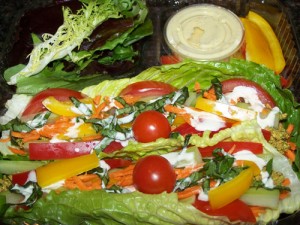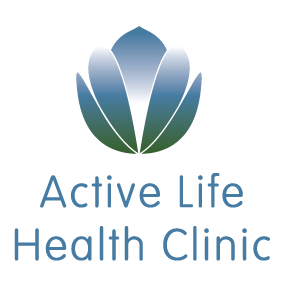 I have recently been asked by a few patients: “What do you think of the raw food diet?”
I have recently been asked by a few patients: “What do you think of the raw food diet?”
A raw food diet generally consists mostly of vegetables, fruits, sprouts, seaweed, nuts, seeds, grains, and beans. Raw foodists do not use a stove or oven to cook their food. When they want to dry out fruit or other foods, food dehydrators are used. Food dehydrators reach maximum temperatures of 115 to 118 degrees, and they can make everything from fruit leathers and kale chips to breads and crackers. They can also be used to make jerky, but the American Dietetic Association would argue that this is not hot enough to destroy harmful bacteria.
The Positive of Rawism
The principle is that raw foods–foods that are neither cooked nor processed–are healthier. They retain their enzymes to support digestion and there is no destruction of their natural vitamins.
Cruciferous vegetables such as broccoli, cauliflower, bok choy, kale, and cabbage are healthier when raw. They contain a compound that converts into isothiocyanates, an anti-cancer compound.
These, of course, are good things!
Other benefits of rawism is that it consists mostly of plant-based foods and avoids refined sugars and alcohol.
The Negatives of Rawism
Like anyone who does not eat animal proteins, supplementing vitamin B12 is important. This is easily done via B12 injections or sublingual (dissolve under the tongue) B12 pills. Though some plants, like spirulina, may be high in B12, they are poorly absorbed by our bodies.
Some foods are better cooked. Tomatoes are rich sources of the phytonutrient lycopene, but only when they are cooked. Mushrooms are difficult to digest when eaten uncooked. Cooking helps to break down the fungal cell walls, rendering them more easily digestible and releasing many of their nutrients. In addition, many edible mushrooms also contain toxic or irritating components that are destroyed by cooking.
Spinach, Swiss chard, and beet greens may also be better cooked. Though these leafy greens are rich in calcium, their high levels of oxalic acid binds to the calcium, thus reducing it availability for absorption. Cooking releases some of the bound calcium making it available for us to digest.
Traditional Chinese Medicine–Our Take on Raw Versus Cooked
Traditional Chinese Medicine does not recommend eating a lot of raw foods. We think of the process of digestion as requiring “Stomach Fire”. If you imagine the stomach as a cooking pot, that pot needs fire under it to cook, i.e. digest. If we keep eating raw and/or cold foods, we put out the digestive fire. You may experience that as gas and bloating.
Lightly cooking our foods make them easier to digest. Yes, there is some loss of enzymes, but the process of cooking breaks down the foods enough to make them more easily digested. Additionally, we do produce our own digestive enzymes. I do not recommend boiling vegetables and tossing out the water that holds many of the vitamins. Instead, I recommend steaming vegetables, slow cooking, and making soups and stews, along with finding the right amount of raw foods that suits you.
If the weather is cold and damp; if eating raw foods make you bloated and gassy; if you tend to feel cold, consider limiting your consumption of raw foods. If the weather is hot; if you feel better with more raw foods; if you tend to feel overheated, more raw foods might be your way to improving your health.
If you do eat a lot of raw food, you might consider adding some warming spices to help keep your digestive fire. These include ginger, cinnamon, cardamon, and cloves.
No matter which path you take, pay attention to how you feel to determine the right combination of raw and cooked foods for you.

I found interesting two postings on Raw Food published last month by Andrew Weil. On enzymes destroyed by cooking, he counters, ¨In fact, these enzymes play no role in human nutrition, because stomach acid destroys them as efficiently as cooking.¨ Here are the links to the posts:
http://www.drweil.com/drw/u/WBL02326/Raw-Food-Diet-and-Your-Brain.html
http://www.drweil.com/drw/u/TIP04614/Should-You-Go-Raw.html
Thanks for sharing this Damian!